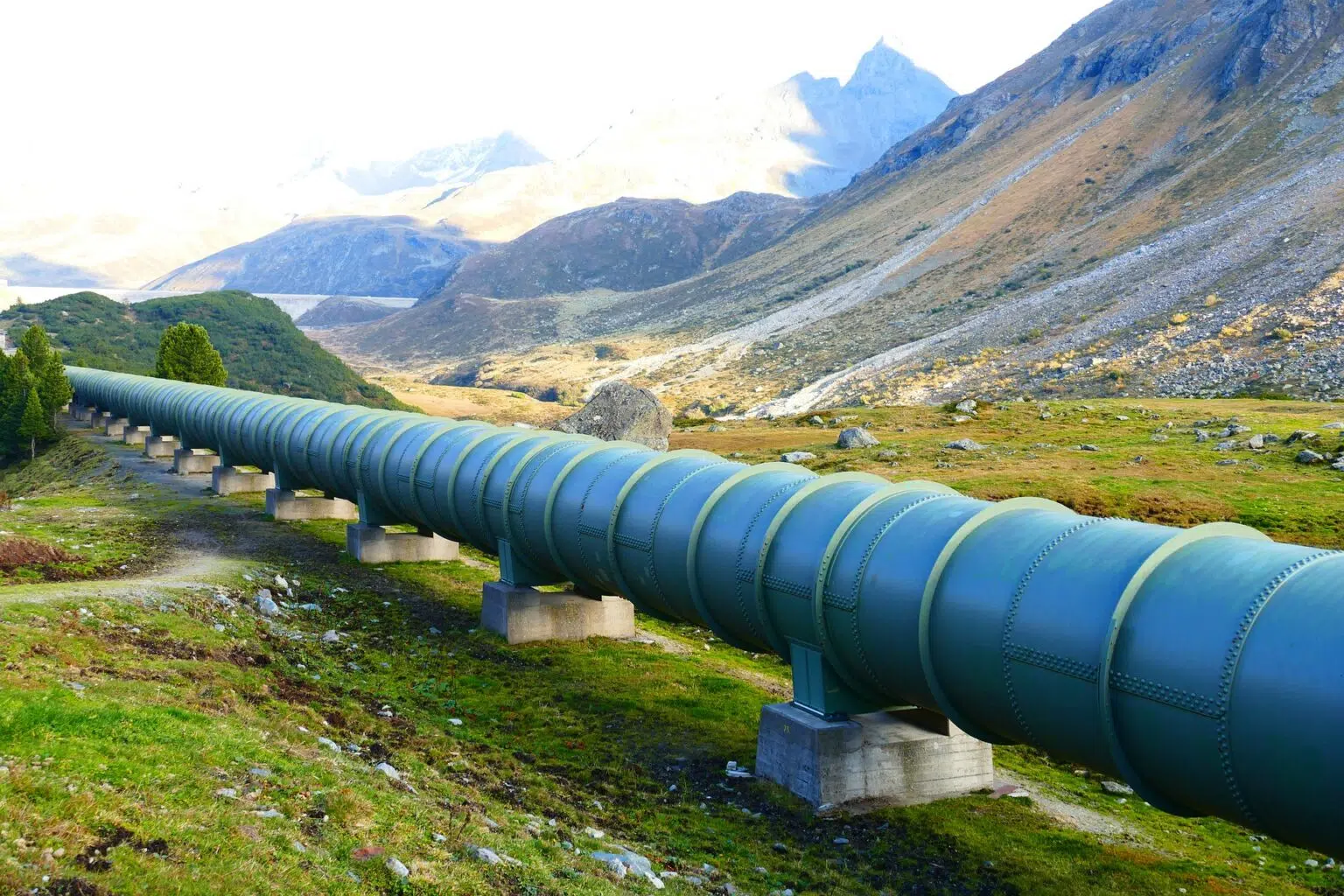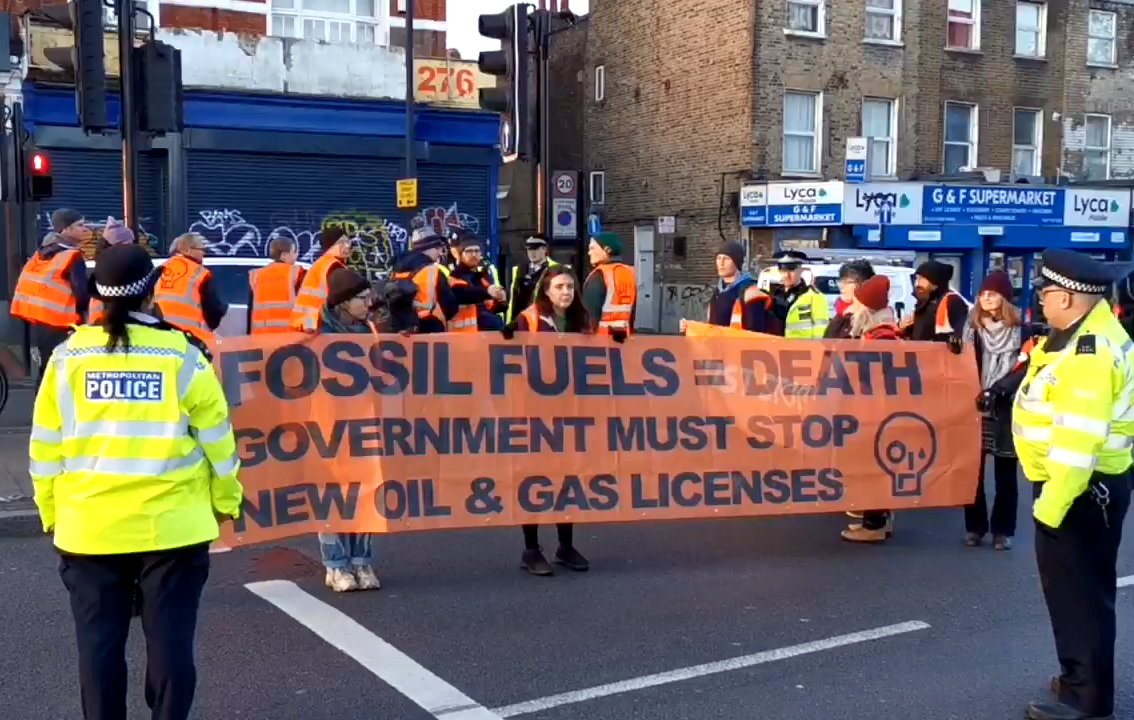Rishi Sunak Boasts That Oil Funded Think Tank ‘Helped Us Draft’ Crackdown on Climate Protests
Original article by Adam Barnett and Sam Bright republished from DeSmog according to their republishing guidelines
The prime minister praised Policy Exchange, which received $30,000 from oil and gas giant ExxonMobil in 2017, for shaping laws that target green activists.

Rishi Sunak has confirmed that a fossil fuel-funded think tank helped to draft his government’s laws targeting climate protests.
Speaking at Policy Exchange’s summer party on Wednesday (28 June), the prime minister boasted that the think tank’s work “helped us draft” the government’s crackdown on protests, according to Politico.
OpenDemocracy reported last year that Policy Exchange’s US wing, American Friends of Policy Exchange, which provides funds to the UK branch, received $30,000 (roughly £23,700) from oil and gas giant ExxonMobil in 2017.
Two years later, Policy Exchange published a report entitled “Extremism Rebellion”, in reference to the environmental protest group, calling for the police and the government to clamp down on eco protests.
An Extinction Rebellion spokesperson told DeSmog that this story “exemplifies the stranglehold that private interests have on our democracy.”
Ministers have been clear that new police powers are designed to stop climate protests. The former Home Secretary Priti Patel cited tactics used by Extinction Rebellion and Insulate Britain when arguing for what became the Police, Crime, Sentencing and Courts Act 2022.
Sunak’s statement yesterday appears to confirm Extremism Rebellion’s allegation that sections of the 2022 law were ‘directly inspired’ by Policy Exchange’s report.
The “Extremism Rebellion” report said that legislation relating to public protest needed to be “urgently reformed” in order to “strengthen the ability of the police to place restrictions on planned protest and deal more effectively with mass lawbreaking tactics”.
This was implemented in the Police, Crime, Sentencing and Courts Act, which came into effect in April 2022 and awarded the police new powers to decide what constitutes a ‘disruptive’ protest and to more harshly punish those involved.
In the year to April 2023, more than 2,000 people were arrested and 138 spent time in prison for their involvement in campaigns by Just Stop Oil, the climate protest group.
Those encarcerated included two protesters who were each sentenced to more than two and a half years in prison – the longest sentences for peaceful climate protest in British history, according to the group – for causing a ‘public nuisance’ by scaling the Dartford Crossing.
This crackdown on protests has been continued by current Home Secretary Suella Braverman, a vocal critic of the UK’s net zero targets, who singled out Just Stop Oil when advocating further powers in the Public Order Act 2023, which received Royal Assent in May.
The legislation, which has been labelled as “draconian” by its opponents, allows the police to pre-emptively intervene to shut down protests and creates new offences for what it describes as “guerrilla tactics”, all of which have been used in recent climate protests.
The law criminalises protesters for attaching themselves (or coming equipped) to lock on to other protesters or buildings, threatening a maximum penalty of six months’ imprisonment, an unlimited fine or both.
For organising protests that block key infrastructure including “airports, railways, printing presses, and oil and gas infrastructure” protesters are threatened with up to 12 months in prison, while tunnelling is set at three years.
The law follows a November report by Policy Exchange that said it was “imperative” for protesters who repeatedly obstruct the highways to be “swiftly arrested, convicted and punished”. It further urged that “magistrates and judges should be imposing severe sentences on repeat offenders who aim deliberately to harm the public by breaching the criminal law”.
Sunak, who worked at Policy Exchange before his 2015 election to parliament, also used the summer party to make a jibe about the Labour Party’s links to Just Stop Oil, one of whose funders, Dale Vince, has donated £1.4 million to the party since 2014.
Sunak’s comments echoed the claim made often by senior Conservatives, that Labour’s opposition to new North Sea oil and gas projects is linked to Dale’s donation. Grant Shapps, Secretary of State for Energy Security and Net Zero, has repeatedly attacked Labour over the connection, writing in the Daily Mail that Labour has become “the political wing of Just Stop Oil”.
In fact, the International Energy Agency has said that new oil and gas projects are not compatible with keeping warming below 1.5C – an international climate goal that has been adopted by the UK government.
Meanwhile, DeSmog revealed in March that the Conservative Party received £3.5 million from fossil fuel interests, high-polluters and climate science deniers last year alone.
Policy Exchange and Climate Change
Policy Exchange was co-founded in 2002 by Michael Gove, who has been a mainstay in the cabinet since 2010. The think tank continues to retain significant influence in Westminster: Policy Exchange alumni make up a greater number of special advisers in Rishi Sunak’s government than any other think tank.
At the 2022 Conservative Party conference, Jacob Rees-Mogg, at the time serving as Business, Energy and Industrial Strategy Secretary, said: “I believe that where Policy Exchange leads, governments have often followed.”
Lord Frost, is currently a senior fellow at the think tank. He was also recently appointed as a director of the Global Warming Policy Foundation (GWPF) – the UK’s principal climate science denial group. This week, Frost – who also attended the Policy Exchange summer party – gave a speech criticising Sunak’s government for offering voters “more net zero”.
Since 2016, Policy Exchange has hosted events at the Conservative Party conference sponsored by energy companies and trade groups including: wood-burning bioenergy firm Drax, gas and electricity supplier E.on, British Gas parent company Centrica, the gas and electricity industry body Energy Networks Association, gas generation company Cadent Gas, trade association Hydrogen UK, and the Sizewell C nuclear plant.
According to VICE News, while the think tank does not advertise the cost of sponsored meetings at party conferences, other similar organisations charge over £12,000 to host an event, which lasts about 30 minutes.
Meanwhile, the chair of the Policy Exchange board is Alexander Downer, who served as Australia’s Foreign Minister from 1996 to 2007. Downer has expressed climate science scepticism in the past, claiming that we are “going through an era” of global warming, and saying that Australian climate leadership would be expensive “virtue signalling”.
Downer was appointed as the High Commissioner to the UK in 2014 by Tony Abbott, who also recently joined the board of the GWPF.
Policy Exchange and 10 Downing Street have been approached for comment.
Original article by Adam Barnett and Sam Bright republished from DeSmog according to their republishing guidelines



